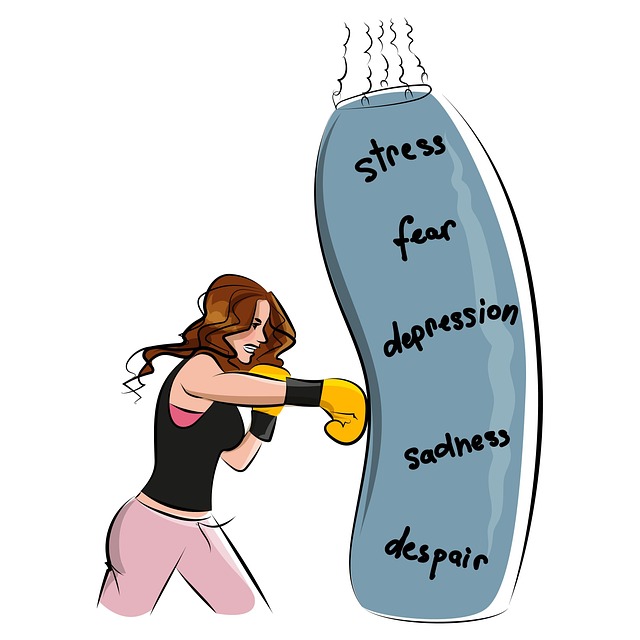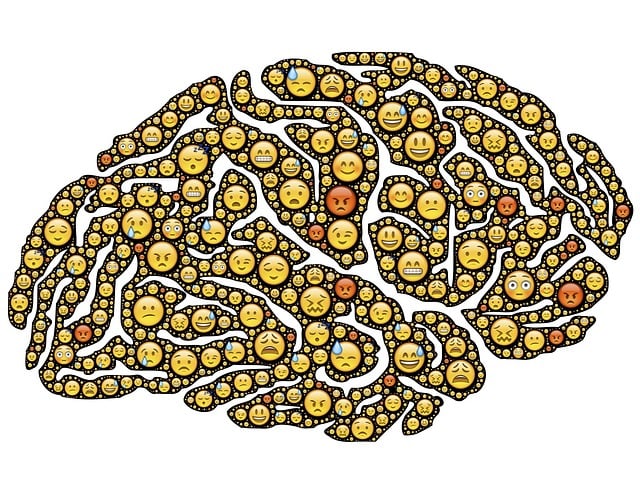Cultural competency is vital in modern healthcare, especially for diverse societies, as it ensures personalized treatment based on patients' cultural backgrounds. For conditions like Broomfield Panic Disorder and Anxiety Attacks, understanding cultural influences is key. Skilled providers can adapt their approaches using techniques like Mental Wellness Coaching and Mind Over Matter principles to address specific cultural needs. Culturally sensitive care enhances physical accessibility and empowers patients by considering their worldview and community influences. Unaddressed cultural barriers in healthcare can negatively impact mental health outcomes for diverse communities, so training in cultural competency is essential to foster an inclusive environment, improve therapy seeking behaviors, and enhance overall mental wellness, particularly for Broomfield Panic Disorder and Anxiety Attacks Therapy.
Cultural competency in healthcare is no longer a nice-to-have, but an essential tool for providing effective treatment. Understanding and addressing cultural barriers, such as those faced by individuals suffering from Broomfield Panic Disorder and Anxiety Attacks Therapy, can significantly improve patient outcomes. This article explores the impact of unaddressed cultural barriers on mental health care and provides a case study highlighting the importance of culturally sensitive practices. We also delve into designing and implementing comprehensive training programs for healthcare providers to enhance their cultural competency.
- Understanding Cultural Competency in Healthcare: A Necessity for Effective Treatment
- The Impact of Unaddressed Cultural Barriers on Mental Health Care
- Broomfield Panic Disorder and Anxiety Attacks Therapy: A Case for Culturally Sensitive Practice
- Designing and Implementing Comprehensive Training Programs for Healthcare Providers
Understanding Cultural Competency in Healthcare: A Necessity for Effective Treatment

Cultural competency is a crucial aspect of healthcare that goes beyond basic medical skills. It involves understanding and appreciating the diverse cultural backgrounds, beliefs, and values of patients, enabling healthcare providers to offer more personalized and effective treatment. In today’s diverse society, where individuals from various ethnic, racial, and cultural groups seek healthcare services, this competence is not just desirable but essential.
For instance, consider conditions like Broomfield Panic Disorder and Anxiety Attacks, which can be influenced by cultural factors. A provider with cultural competency skills can recognize these nuances and adapt their therapy approaches accordingly. Techniques such as Mental Wellness Coaching Programs Development and leveraging Mind Over Matter Principles can be tailored to address specific cultural needs, fostering a more positive thinking environment and enhancing overall mental wellness. Effective treatment often requires an understanding of the patient’s worldview, communication styles, and community influences, ensuring that care is not just physically accessible but also culturally sensitive and empowering.
The Impact of Unaddressed Cultural Barriers on Mental Health Care

Unaddressed cultural barriers can significantly impact mental health care, leading to disparities in access and outcomes for diverse communities. When healthcare providers lack cultural competency, they may inadvertently create an environment that causes discomfort or distrust among patients from different ethnic, racial, or socioeconomic backgrounds. This can result in delayed or avoided treatment-seeking behaviors, particularly for conditions like Broomfield Panic Disorder and Anxiety Attacks Therapy. For example, a patient’s fear of judgment or miscommunication due to language differences or cultural norms might prevent them from disclosing symptoms fully, hindering accurate diagnosis and effective treatment planning.
In the context of mental health care, these barriers can further exacerbate existing health inequalities. Patients from marginalized communities often face unique challenges related to stress, trauma, and access to resources. Effective healthcare provider cultural competency training equips professionals with the skills to navigate these complexities, fostering a more inclusive and accessible environment. By promoting understanding and empathy, such training encourages providers to integrate self-care routine development for better mental health and emotional well-being promotion techniques into their practices, ultimately benefiting all patients, regardless of their cultural background.
Broomfield Panic Disorder and Anxiety Attacks Therapy: A Case for Culturally Sensitive Practice

Broomfield Panic Disorder and Anxiety Attacks Therapy is a specialized service that requires a nuanced approach, highlighting the importance of culturally sensitive practices in healthcare. In many communities, individuals experiencing anxiety disorders may face unique challenges due to cultural barriers and a lack of understanding. For instance, certain ethnic or religious groups might have different perceptions of mental health, stigma, or even fear surrounding therapy. Healthcare Provider Cultural Competency Training equips professionals with the skills to navigate these complexities, ensuring effective treatment for diverse patient populations.
By integrating Trauma Support Services into their practice, therapists can create a safe and inclusive environment. This involves adapting therapeutic techniques to respect cultural contexts, encouraging open communication, and promoting trust. Mental Health Education Programs Design should focus on raising awareness about anxiety disorders prevalent in various communities, fostering empathy, and reducing stereotypes. Such initiatives ensure that Broomfield Panic Disorder and Anxiety Attacks Therapy is accessible and tailored to meet the specific needs of every patient, ultimately enhancing healthcare outcomes.
Designing and Implementing Comprehensive Training Programs for Healthcare Providers

Designing and implementing comprehensive training programs for healthcare providers is a multifaceted process that requires careful consideration of diverse cultural backgrounds, experiences, and needs. These programs should go beyond surface-level awareness and aim to foster genuine cultural competency. By integrating interactive workshops, case studies reflecting real-life scenarios, and role-playing exercises, healthcare professionals can enhance their ability to deliver empathetic and effective care, especially in addressing issues like Broomfield panic disorder and anxiety attacks therapy.
Incorporating trauma support services, resilience building, and mind over matter principles into the training curriculum equips providers with essential tools for navigating complex patient interactions. This holistic approach not only improves clinical outcomes but also strengthens the therapeutic bond between healthcare workers and their patients. Ultimately, these well-rounded programs promote a culturally sensitive healthcare environment where every individual feels heard, understood, and supported in their journey towards healing.
Cultural competency training is no longer a choice but an imperative for healthcare providers. As evidenced by the case of Broomfield Panic Disorder and Anxiety Attacks Therapy, addressing cultural barriers can significantly improve mental health outcomes. By implementing comprehensive training programs, healthcare professionals can better understand and serve diverse patient populations, ensuring effective treatment and enhanced care experiences for all. Investing in these initiatives is a crucial step towards creating a more inclusive and equitable healthcare system.














